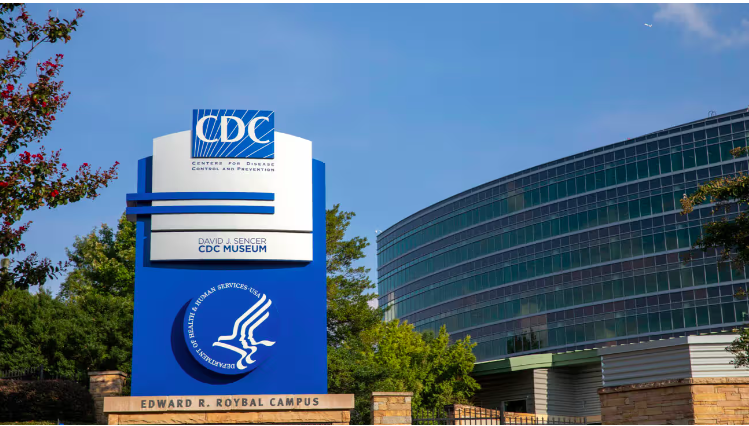Health
Why You Should Avoid Processed Foods: 7 Negative Effects

Why You Should Avoid Processed Foods: 7 Negative Effects

Do you remember the first time you had a processed food? Maybe it was a packaged snack that you grabbed from the vending machine, or maybe it was something more elaborate like a pizza or pasta dish.
If so, then you probably remember how quickly that food went to your waistline and how sick you felt afterward. Despite the popularity of processed foods, there are several reasons why you should avoid them, not to mention, the negative effects that processed foods have on your health.
Read on for more information about the 7 major problems that processed foods cause.
Processed foods are high in sugar, unhealthy fats, and sodium.
There’s no doubt that processed foods are popular, but that doesn’t mean that they’re good for you. In fact, processed foods are high in sugar, unhealthy fats, and sodium, all of which are harmful to your body.
Not to mention, processed foods often contain harmful chemicals that can cause health problems later on in life. By avoiding processed foods, you’ll be able to live a healthier life that’s free from health concerns.
So what are you waiting for? Give processed food a miss and start enjoying a healthier and more fulfilling diet today!
Inflammation
Inflammation is a universal response your body has to various stressors and injuries. It’s an important process that helps protect you from infections and injuries.
However, too much inflammation can have negative consequences for your health. That’s why it’s important to eliminate processed foods from your diet.
These foods often contain high levels of sugar and unhealthy fats, both of which contribute to inflammation. In addition, processed foods are often linked with inflammation in the body, which can lead to a host of health problems.
These problems can range from chronic diseases such as obesity and heart disease, to various types of cancer. By reducing your intake of processed foods, you’re going to improve your overall health and reduce your risk of various health disorders!
Digestive problems
Processed foods are bad for your gut health in a number of ways. Not only do they cause digestive problems, but they can also lead to obesity and heart disease.
In addition, a unhealthy gut flora balance can cause numerous other health issues, such as bloating, diarrhea, and constipation.
So, why put up with all the negative effects? Simply avoid processed foods if you want a healthy gut flora balance. Doing so won’t be easy, but it’s definitely worth it!
Poor health
Processed foods are often considered the ‘bad boys’ of the food world. And for good reason – they often contain high amounts of sugar, sodium, and unhealthy fats, to name a few.
Not to mention, they’re often heavily processed, meaning they contain a higher level of chemicals than healthier options.
In fact, processed foods may even cause inflammation in the body, leading to conditions like arthritis and heart disease. So if you’re looking to improve your health overall, avoid processed foods!
Bad cholesterol
Processed foods are bad for your health. Not only do they increase the risk of heart disease and other health problems, but they also contain unhealthy fats, sugar, and salt that can damage your body over time.
In fact, research has shown that processed foods are linked to an increased risk of bad cholesterol and other health problems.
By avoiding these foods, you’ll be able to improve your mood and energy levels, as well as maintain a healthy weight.
Nutrition is key when it comes to eating healthy, so reducing processed food intake will help you stay on track.
So, next time you’re tempted to snack on a processed food, remember the negative effects it has on your health and choose something healthier instead.
Weight gain
It’s no secret that processed foods are not the best for our health. In fact, they can be quite damaging. Here are seven reasons why you should avoid processed foods:
1. They are full of unhealthy fats and chemicals that can contribute to weight gain.
2. They are often marketed as being healthy, but this is not always the case.
3. They also contain high levels of sugar, which can spike your blood sugar levels and cause cravings for more food.
4. Eating processed foods regularly can have a negative impact on your overall health, including your waistline!
5. Processed foods are often expensive, which can make them hard to afford for some people.
6. They are often high in calories and don’t offer much in the way of nutritional value.
7. They can be addictive, making it difficult to give them up for good.
Emotional problems
Eating processed foods is not only unhealthy, but it can also lead to emotional problems. These problems can include anxiety, depression, stress, and cravings for unhealthy snacks.
In fact, processed food products often lack important nutrients, which only makes matters worse. All of these negative effects are compounded by the fact that processed foods are often eaten in place of healthy food.
This can lead to weight gain and other health conditions. In light of all this, it’s important to be aware of the negative effects of processed foods and avoid them at all costs.
FAQs
What are some healthy alternatives to processed food that I can eat on a regular basis?
If you’re looking for healthy alternatives to processed food that you can eat on a regular basis, then start by choosing organic fruits and vegetables, whole grain breads and cereals, legumes (beans), nuts, seeds, tofu/tempeh.
Additionally, make sure to get enough protein from plant-based sources. This includes consuming moderate amounts of protein from animal-based sources as well, but aim to get at least 25% of your daily calorie intake from plant-based sources.
In terms of sugars and sweeteners, try to avoid eating too many of these as they will significantly increase your calorie intake and risk of weight gain.
Is it better to snack on real food or processed food when trying to lose weight?
When it comes to losing weight, it’s always best to eat real food instead of processed food. This means that you should snack on fruits and vegetables, whole grains, low-fat dairy products, and lean protein.
Processed foods are high in calories and contain a lot of sugar that is linked to obesity, type II diabetes, and other health issues. In addition, processed foods often contain additives and preservatives that can adversely affect your gut health.
Instead of snacking on processed food, try to stick to healthy snacks like fruits and vegetables throughout the day.
This will help you regulate your body’s metabolism towards burning off calories rather than storing them. And lastly, try to maintain a healthy gut by avoiding processed foods and eating fermented foods regularly.
What are some of the negative effects of eating processed foods?
One of the major negative effects of eating processed foods is that they can contribute to conditions like obesity, heart disease, type II diabetes and more.
Processed foods contain a lot of sugar, unhealthy fats, and additives that can have negative consequences for your health.
These foods are often high in calories and cause weight gain over time. Eating processed foods regularly may also increase your risk of developing some chronic diseases.
How can I avoid eating processed foods all together?
By avoiding processed foods all together, you’ll be reducing your risk for a variety of health problems. These include obesity, heart disease, stroke, cancer, and more. Processed foods are full of unhealthy additives, artificial colors and flavors, and trans fats.
So by making the conscious decision to avoid processed foods, you’ll be doing your body and mind a big favor. You don’t have to go without food entirely, just make sure that the meals you eat are unprocessed and natural.
This means eating foods like fruits, whole grains, and vegetables instead of processed ones that contain unhealthy ingredients.
Are there any other benefits that come with eating more real, whole foods over processed foods?
There are many benefits that come with eating morereal, whole foods over processed foods. These benefits include: 1. You’ll have more energy throughout the day. 2. You may experience cravings for junk food when eating processed foods, which is not healthy at all. 3. Processed foods contain a lot of toxins that get stored in the fat cells and can lead to weight gain and other health problems. 4. When you eat processed foods, your body becomes addicted to sugar and unhealthy fats.
Conclusion
Processed foods are not only unhealthy, but they also have negative effects on your health in a number of ways.
By avoiding processed foods, you can improve your overall health and well-being by reducing your risk of developing chronic diseases, gaining weight, and experiencing digestive problems.
Make sure to read through the blog to learn about the different negative effects of processed foods and take the necessary steps to avoid them.
Tell us anything you know about Why You Should Avoid Processed Foods
Remember your health is wealth
Please, let us know your thoughts in the comments section.
Health
Protein-Infused Diet Coke: The Viral ‘Dirty Soda’ Trend Taking TikTok by Storm

Protein-Infused Diet Coke: The Viral ‘Dirty Soda’ Trend Taking TikTok by Storm
The rise of quirky, unconventional food and drink trends is a staple of social media, but one concoction that’s recently captured TikTok’s imagination is “Protein Diet Coke,” fondly referred to as a “dirty soda.”
Combining the classic fizz of Diet Coke with creamy protein shakes, this bizarre yet fascinating combination has gained traction for its unique taste, nutritional benefits, and shareable aesthetic appeal.
But is it more than just a passing fad? Let’s dive into why this drink has taken the internet by storm, the health implications, and how you can make your own.
What Is Protein Diet Coke?
Protein Diet Coke is a mashup of two popular beverages: Diet Coke, known for its zero-calorie allure, and protein shakes, a go-to choice for fitness enthusiasts.
By blending these seemingly unrelated drinks, you get a fizzy, creamy concoction that surprises the palate and offers a protein-packed twist.
This beverage has become a TikTok sensation, with videos showcasing creative ways to personalize the drink by experimenting with flavors, toppings, and presentation.
How Did Protein Diet Coke Become a Trend?
The trend began with users sharing videos of themselves trying the drink and reacting to its surprising taste.
The hashtag #ProteinDietCoke amassed millions of views as influencers and everyday users alike showcased their custom recipes. Social media thrives on novelty, and the odd pairing of soda and protein shake fits the bill perfectly.
Moreover, this trend reflects a broader shift toward incorporating fun into fitness and healthy eating. As people explore unique ways to stay healthy, Protein Diet Coke offers a mix of indulgence and nutrition.
Health Benefits of Protein Diet Coke
1. Boosts Protein Intake:
Protein is essential for muscle repair, weight management, and overall body function. By mixing Diet Coke with a protein shake, you create a delicious way to meet your daily protein goals.
2. Low-Calorie Alternative:
For those watching their calorie intake, using Diet Coke and low-sugar protein shakes keeps the drink guilt-free while satisfying cravings for something sweet and fizzy.
3. A Fun Recovery Drink:
The combination of carbonation and protein makes this drink a potential post-workout recovery option. While traditional recovery drinks are effective, Protein Diet Coke brings a fun twist to replenishing nutrients.
Possible Drawbacks of Protein Diet Coke
While this beverage has many enthusiasts, it’s not without its critics.
1. Artificial Sweeteners:
Diet Coke contains artificial sweeteners like aspartame, which some people prefer to avoid due to potential health concerns.
2. Unusual Flavor:
Not everyone loves the combination of cola and creamy textures. For some, it’s an acquired taste.
3. Limited Nutritional Value from Soda:
Though protein shakes provide nutrients, the soda itself doesn’t offer significant health benefits. Consuming it in moderation is key.
How to Make Protein Diet Coke at Home
Ingredients:
- 1 can of Diet Coke (12 oz)
- 1 scoop or 8 oz of your favorite protein shake (vanilla or caramel flavors work best)
- Ice cubes
- Optional: toppings like whipped cream, syrups, or fruit
Instructions:
- Fill a glass with ice cubes.
- Pour the Diet Coke into the glass, leaving some space for the protein shake.
- Slowly add the protein shake to the Diet Coke. Stir gently to combine.
- Customize with toppings or syrups if desired.
- Enjoy immediately!
Why Do People Love It?
The allure of Protein Diet Coke lies in its unexpected combination and social media appeal.
The drink’s unique flavor profile intrigues people, while its aesthetic presentation makes it Instagram-worthy.
Additionally, it’s a fun way to consume protein without feeling like you’re drinking a traditional shake.
Creative Variations of Protein Diet Coke
1. Mocha Protein Soda:
Add a chocolate-flavored protein shake for a mocha-inspired treat.
2. Tropical Twist:
Use coconut-flavored protein powder and garnish with pineapple slices.
3. Spicy Cola Blend:
Mix in a dash of cinnamon or chili powder for a bold kick.
4. Vanilla Caramel Float:
Top with a dollop of whipped cream and caramel drizzle for an indulgent dessert-like drink.
Is Protein Diet Coke Here to Stay?
Trends often fade as quickly as they emerge, but Protein Diet Coke might have staying power due to its flexibility and nutritional appeal. As long as social media continues to celebrate creativity in the kitchen, this quirky beverage is likely to remain a go-to option for adventurous foodies.
Conclusion
Protein Diet Coke is more than just a viral sensation; it’s a testament to how creativity can turn everyday ingredients into something extraordinary.
While it may not replace traditional sources of protein or be everyone’s cup of tea (or soda), it has undeniably carved out a niche in the world of health-conscious indulgence.
Whether you’re in it for the taste, the health benefits, or the TikTok-worthy moments, this “dirty soda” trend is worth a try.
FAQs
1. Can I use regular Coke instead of Diet Coke?
Yes, but keep in mind that regular Coke has significantly more sugar and calories, which might defeat the purpose of a low-calorie drink.
2. What type of protein shake works best?
Vanilla and caramel protein shakes are popular choices because they complement the flavor of cola. However, feel free to experiment with other flavors.
3. Is Protein Diet Coke suitable for kids?
While it’s not inherently harmful, the caffeine content in Diet Coke might not be suitable for children. Opt for caffeine-free soda if making this for kids.
4. Can I make a vegan version?
Absolutely! Use plant-based protein shakes and ensure the soda is vegan-friendly.
5. How often can I drink Protein Diet Coke?
Like any treat, moderation is key. Consuming it occasionally as part of a balanced diet is perfectly fine.
References
Health
STI Epidemic: Decline in New Syphilis and Gonorrhea Cases in the US, CDC Reports
Health
Dave Coulier Opens Up About His Battle with Stage 3 Non-Hodgkin’s Lymphoma

Dave Coulier Opens Up About His Battle with Stage 3 Non-Hodgkin’s Lymphoma
A Beloved Star Faces a Serious Diagnosis
Dave Coulier, best known for his role as Joey Gladstone on the iconic sitcom Full House, has revealed a deeply personal health challenge.
The comedian and actor recently announced his diagnosis of Stage 3 Non-Hodgkin’s Lymphoma, sparking widespread concern and support from fans worldwide.
Coulier’s bravery in sharing his journey sheds light on this complex form of cancer, its symptoms, treatment options, and the importance of early detection.
What is Non-Hodgkin’s Lymphoma?
Understanding the Disease
Non-Hodgkin’s Lymphoma (NHL) is a type of cancer that originates in the lymphatic system, which is an integral part of the body’s immune defense.
This form of lymphoma is distinct from Hodgkin’s lymphoma due to differences in the cancerous cells’ appearance and behavior.
- Lymphatic System’s Role: It helps fight infections and regulates fluid balance in the body.
- Lymphoma’s Impact: NHL occurs when lymphocytes (a type of white blood cell) grow uncontrollably, leading to tumors.
Dave Coulier’s Journey: From Diagnosis to Awareness
The Diagnosis
Coulier disclosed that he had been feeling fatigued and unwell for several months before seeking medical advice.
A series of diagnostic tests, including a biopsy and imaging scans, confirmed the presence of Stage 3 Non-Hodgkin’s Lymphoma.
How He Shared the News
In a heartfelt video shared with his fans, Coulier discussed his diagnosis candidly. The star emphasized the importance of listening to one’s body and seeking medical help when something feels off.
“I’ve always tried to make people laugh, but now, I want to use my voice to educate and inspire,” he said.
Symptoms of Non-Hodgkin’s Lymphoma
Recognizing the symptoms early can make a significant difference in treatment outcomes.
Some common symptoms include:
- Swollen lymph nodes, often painless
- Persistent fatigue
- Unexplained weight loss
- Fever and night sweats
- Abdominal pain or swelling
- Chest pain, coughing, or trouble breathing
Why Early Detection Matters
Coulier’s journey highlights the importance of not ignoring persistent symptoms. Timely diagnosis can improve treatment effectiveness and overall prognosis.
Stages of Non-Hodgkin’s Lymphoma
NHL is categorized into four stages based on its spread:
- Stage 1: Cancer is localized to one lymph node region.
- Stage 2: Two or more lymph node regions on the same side of the diaphragm are affected.
- Stage 3: Cancer involves lymph nodes on both sides of the diaphragm.
- Stage 4: The disease has spread beyond the lymphatic system to other organs.
Coulier’s diagnosis at Stage 3 underscores the critical need for awareness and early intervention.
Treatment Options for Non-Hodgkin’s Lymphoma
Tailored Treatment Plans
The treatment for NHL varies depending on the stage and specific subtype.
Common approaches include:
- Chemotherapy: Often the first line of defense to target rapidly dividing cancer cells.
- Radiation Therapy: Used to shrink tumors in localized areas.
- Immunotherapy: Boosts the immune system’s ability to fight cancer.
- Targeted Therapy: Focuses on specific molecules involved in cancer growth.
Dave Coulier’s Treatment Regimen
While Coulier hasn’t shared detailed specifics about his treatment, he expressed gratitude for his medical team and the support of loved ones.
Living with Non-Hodgkin’s Lymphoma
Physical and Emotional Challenges
Coping with cancer involves more than just physical treatments. Patients often face emotional struggles, including anxiety, fear, and uncertainty.
Coulier’s Positive Outlook
Despite his diagnosis, Coulier remains optimistic, often sharing moments of humor and gratitude. His resilience inspires others battling similar challenges.
Raising Awareness for Non-Hodgkin’s Lymphoma
The Power of Advocacy
Coulier is using his platform to spread awareness about NHL. His message encourages individuals to prioritize their health and support ongoing cancer research.
Supporting Research and Treatment Advances
Progress in lymphoma treatment, such as CAR T-cell therapy and advancements in immunotherapy, offers hope for patients worldwide.
How Fans Can Show Their Support
Messages of Encouragement
Fans have flooded social media with messages of love and encouragement for Coulier. Sharing personal stories of resilience and hope strengthens the community of those affected by lymphoma.
Donating to Lymphoma Research
Supporting organizations focused on lymphoma research and patient advocacy can make a significant impact.
Conclusion:
Dave Coulier’s openness about his battle with Stage 3 Non-Hodgkin’s Lymphoma reminds us of the importance of health awareness and community support. As he navigates this challenging chapter, his strength and advocacy serve as a beacon of hope for others facing similar battles.
FAQs
1. Can Non-Hodgkin’s Lymphoma be cured?
Yes, many cases of NHL can be treated effectively, especially when diagnosed early. Advanced treatments have improved survival rates significantly.
2. How does Non-Hodgkin’s Lymphoma differ from Hodgkin’s Lymphoma?
The primary difference lies in the specific type of cancerous cells. Hodgkin’s Lymphoma involves Reed-Sternberg cells, which are absent in NHL.
3. Are there lifestyle factors that increase the risk of NHL?
While the exact cause is unknown, factors like a weakened immune system, certain infections, and exposure to specific chemicals can increase risk.
4. What support resources are available for NHL patients?
Numerous organizations, such as the Lymphoma Research Foundation, offer resources, support groups, and financial assistance for patients and their families.
5. How can I reduce my risk of developing lymphoma?
Maintaining a healthy lifestyle, avoiding exposure to harmful chemicals, and addressing infections promptly can help lower your risk.
References:
-

 Trending Stories1 year ago
Trending Stories1 year agoCDC: 1 in 4 Americans Still COVID-Free by End of 2022
-

 Health8 months ago
Health8 months agoHow Do Pawpaw Seeds Support Cardiovascular Health?
-

 Health5 years ago
Health5 years agoMeghan Trainor Shares Motivational New Song ‘Blink’
-

 Health2 years ago
Health2 years agoHow Long Does Monkey Pox Last Before It Surfaces in the Body?
-

 Health3 years ago
Health3 years agoWhat Causes Swollen Body? Understanding Edema and its Triggers
-

 Health3 years ago
Health3 years agoNutrition and the Importance of a Fitness Program – 3 Things to Know
-

 Health3 years ago
Health3 years ago5 Weird Reasons Why Pimples Disappear After Marriage
-

 Health3 years ago
Health3 years agoHealth Benefits Of Pawpaw Seed? 7 Things To Know






